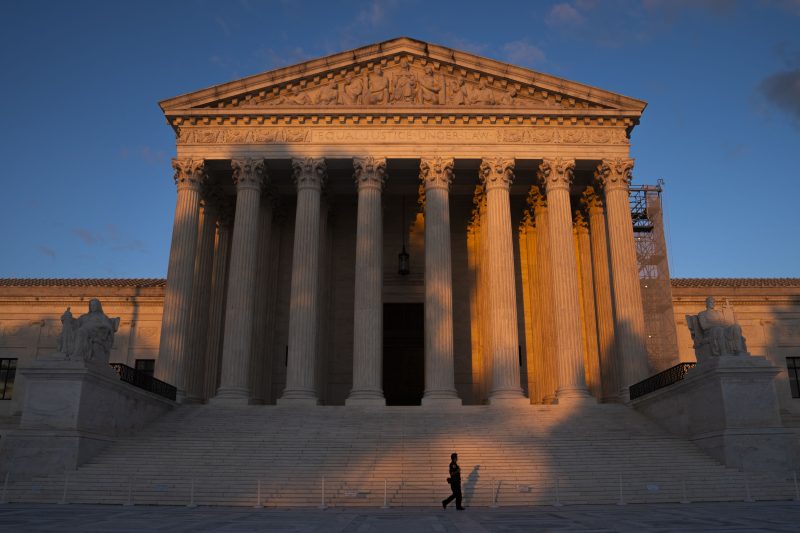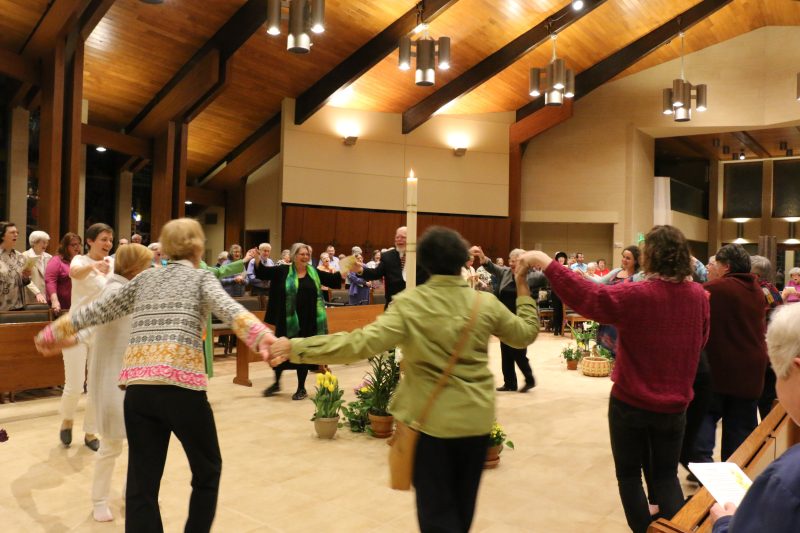
Supreme Court declines to intervene in Texas emergency abortion case
The Supreme Court on Monday refused to require doctors in Texas to perform certain emergency abortions when the procedure would conflict with the state’s strict abortion ban.
The justices left in place a lower-court ruling that rejected the Biden administration’s claim that federal law requires access to emergency abortion care even in states that restrict the procedure.
As is common when the court refuses to review a lower court decision, the order — issued on the first day of the Supreme Court’s new term — did not explain the justices’ reasoning. There were no noted dissents.
The court’s action comes just months after the justices intervened in a similar case in Idaho and reflects continued fallout and confusion from its decision in 2022 to overturn Roe v. Wade and eliminate the nationwide right to abortion after nearly 50 years.
In the Idaho case, the justices in June temporarily cleared the way for doctors to terminate pregnancies without being subject to prosecution under that state’s abortion ban. At the time, abortion rights groups and medical experts called the Idaho decision a preliminary victory that did not settle the broader question of whether a federal emergency-care law preempts strict state abortion bans.
In both Idaho and Texas, the Biden administration has asserted that the federal law — the Emergency Medical Treatment and Labor Act — mandates emergency abortion care when it is the only treatment that can save a pregnant woman’s life or prevent serious harm to her health, including conditions short of death such as organ failure or loss of fertility.
The Biden administration first turned to the law known as EMTALA in late 2021 as a way to try to ensure access to abortion in limited situations. In July 2022, after the Supreme Court overturned Roe, the administration told hospitals receiving Medicare funds that emergency room doctors must terminate pregnancies in some circumstances, even if a state’s law bars the procedure. Hospitals that do not comply face penalties of up to $120,000 per violation.
The state of Texas successfully sued the Department of Health and Human Services in District Court to block federal enforcement of that policy, accusing the administration of exceeding its authority by implementing it without the required process. The U.S. Court of Appeals for the 5th Circuit upheld the decision in January, finding that the Texas ban on abortion does not conflict with EMTALA. The court said the federal law does not require any particular care and never requires pregnancy termination.
“EMTALA does not mandate medical treatments, let alone abortion care, nor does it preempt Texas law,” the judges wrote.
Solicitor General Elizabeth B. Prelogar had urged the Supreme Court to get rid of the 5th Circuit decision in light of its action in the Idaho case. Defending the administration’s position, she said a separate decision from the Texas Supreme has led state officials to disclaim any conflict between the Texas law and the federal interpretation of EMTALA. Prelogar said a lower court would probably find that there was no longer any live controversy to resolve.
Texas Attorney General Ken Paxton had asked the justices to leave the 5th Circuit ruling in place and drew a distinction between the abortion bans in Idaho and Texas. The Texas law, he said, allows for abortion when necessary to prevent a serious risk of “substantial impairment of a major bodily function.”
In both Texas and Idaho, however, the medical exceptions included in abortion bans are vague, using language that has left doctors unsure of how sick a woman must be before they can legally terminate a pregnancy.
“Given that neither exception is particularly clear, and the interpretation is ongoing, it’s not really obvious how different they are,” said Mary Ziegler, a law professor at the University of California Davis who specializes in abortion issues.
By refusing to consider the Texas case, months after sending the Idaho case back to lower courts, the Supreme Court has left all options open for future rulings on emergency abortions, Ziegler said.
“It’s just as likely that Idaho will win in a big way as it is that the Biden administration will win,” she said. “All of these outcomes are on the table.”
Alexis McGill Johnson, president of Planned Parenthood Federation of America, responded to the court’s action by saying the justices had for a second time this year “punted on clarifying that existing federal law applies to everyone, including those who are pregnant.”
“Pregnant people must be able to obtain the emergency care they need in hospital emergency rooms — which includes abortions, regardless of a state’s abortion ban,” she said.
John Seago, president of Texas Right to Life, said in a statement on X that the Texas law has “clear & sufficient provisions for treating women” in medical emergencies. He blamed the Biden administration for introducing a “new vague standard that would only lead to more confusion” among doctors about their responsibilities.
Women in Texas, however, say doctors have continued to deny abortions in emergency situations.
Earlier this year, Kelsie Norris-De La Cruz was denied care at a Dallas area hospital for an ectopic pregnancy, a life-threatening condition where a fetus implants outside of the uterus. The doctor sent Norris-De La Cruz home to wait for her situation to worsen, according to medical records reviewed by The Washington Post.
By the time another doctor agreed to treat Norris-De La Cruz, records show, her pregnancy had already started to rupture.



